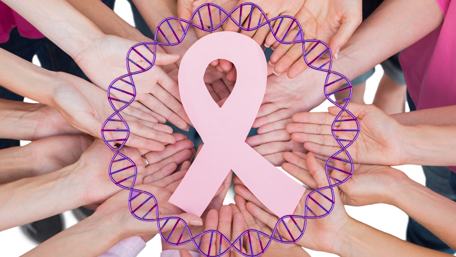Category: breast cancer
Persistent Underutilization of BRCA Testing for Breast and Ovarian Cancer in the United States: Implications for Health Disparities

Two recent studies document ongoing underutilization and disparities in genetic testing for patients with breast and ovarian cancer. BRCA1 and BRCA2 (BRCA) genetic testing is supported by clinical guidelines to inform hereditary cancer risk for people with certain personal or family health histories of breast, ovarian, pancreatic, or prostate cancer, and to guide treatment decisions Read More >
Posted on by 1 CommentTrends and Factors Affecting Utilization of BRCA Testing in the United States: The Need for Improved Surveillance

This blog post is a summary of two recent CDC papers on the trends in utilization of BRCA testing in the United States, and metropolitan-nonmetropolitan areas differences in testing. Women with pathogenic BRCA mutations have an estimated 45–65% risk of breast cancer and a 17–39% risk of ovarian cancer by age 70, as compared with Read More >
Posted on byRecommendations and Reality: What Personal Stories of Hereditary Cancer Can Tell Us

In public health and clinical medicine, recommendations for interventions are generally based on the evidence supporting improved health outcomes. Studies that inform these recommendations often focus on the evidence for benefits, especially when those benefits include lives saved. The harms that affect quality of life are more challenging to quantify and sometimes go unmeasured. Recommendations Read More >
Posted on by 1 CommentUsing Genomics in Precision Prevention of Breast Cancer

Breast cancer is the most common cancer in women in the United States. It is estimated that 3%-5% of breast cancer cases are hereditary, most often involving mutations in BRCA1 and BRCA2 genes. Such mutations confer high lifetime risk of breast and ovarian cancer. The United States Preventive Services Task Force has issued specific recommendations Read More >
Posted on by

